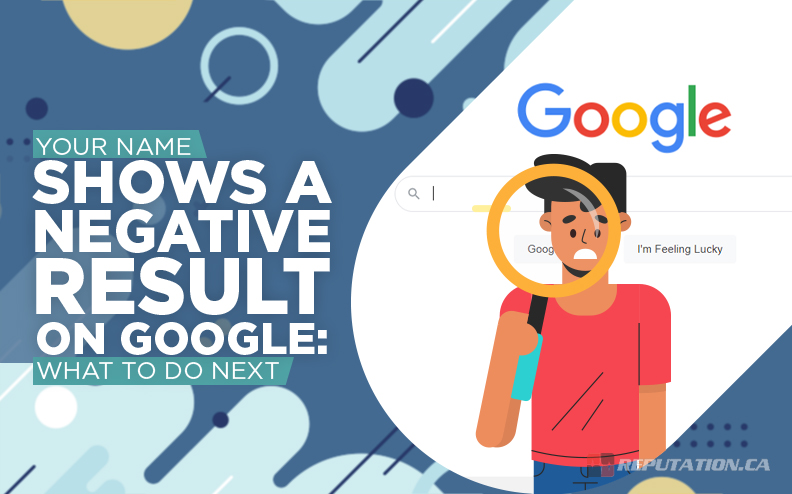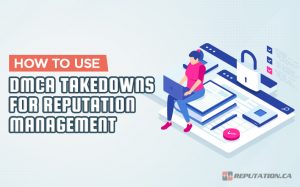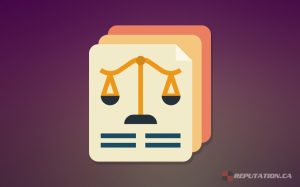Any time you’re searching for your name online, you run the risk of seeing something you don’t want to see. This is doubly true if you’re trying to build up a personal brand, and triply true if you’re a public figure or personality who requires a clean public presence to be effective.
Whether you’re a politician, a celebrity, or just an average Joe trying to get a job, people will search Google for you. Thus, you want to sculpt the experience they have when they look you up.
So, let’s say you’ve searched your name, and you’ve found a page that has… “disparaging” content about you. Maybe it’s a trash post on The Dirty. Maybe it’s legal records on Justia. Maybe it’s a bad review on a book you wrote on Amazon, or maybe it’s just someone’s blog where they write about a bad experience they had with you, or just how much they don’t like you.
What do you do? How can you handle this situation? Here are the DOs and DON’Ts of handling this situation.
DO: Analyze the Situation
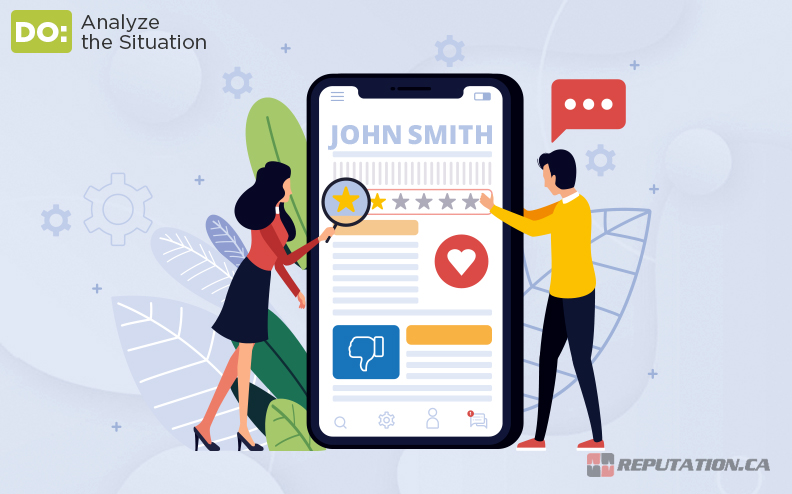
Before you do anything at all, you should step back and analyze the situation. It’s easy to get emotional and try to go on the attack, but taking immediate action isn’t going to do any good. After all, you don’t know necessarily how long this site has existed or has been ranking. The damage may be “done”, and taking a few extra days or weeks to deal with the problem won’t be a make-or-break situation.
Some things to check include:
- Do you have any upcoming events that this could hurt? If you’re, say, running for office, if the election is in a few weeks, the damage a well-ranking hate post can do is steeper, and action needs to be taken faster.
- How long ago was the post created? If it’s been around for months or years, you can probably take longer to deal with it. If it’s fresh, you may have different options for solving the issue.
- Does the post include anything that could constitute defamation? Defamation is strict and is defined as a statement that injures your reputation. You have to prove that it is false and pretending to be true, that other people have seen the statement, that it is at minimum negligent, and that it causes tangible damage. It’s a tall order, but it gives you legal recourse you otherwise wouldn’t have.
- Does the post violate copyright protections? Copyright law is tricky, but if the poster has taken your content and isn’t using it in fair use, you may be able to use the DMCA to take down the post.
You will also want to gather information. What is the domain and URL of the site? Are there other sites mirroring the content? Is it the kind of site that holds information for ransom like The Dirty, or is it a personal blog or review from an individual with less power behind it? What is the name and identity of the person who posted the information? What is their contact information, if you can find it? What is their web host, and its contact information? All of this can be useful in dealing with the post.
DON’T: Immediately Take Action While Emotional
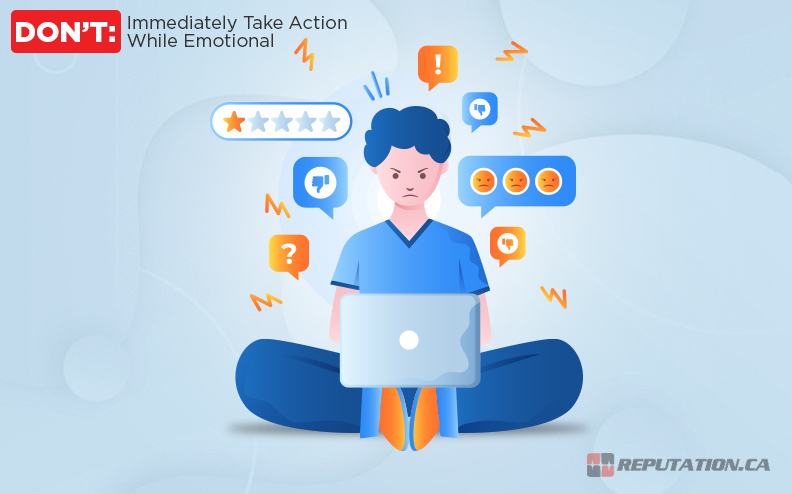
One thing you absolutely shouldn’t do is take action before you’ve taken the time to settle down and gather all the facts.
Time and again, we see people – from individuals to business owners to politicians and celebrities – find insulting content online and go off half-cocked on the offense. They try to discredit the poster, they result in throwing insults, they get mad, and generally just throw a tantrum. Unfortunately, doing this tends to validate the original poster while it discredits you.
Yes, seeing insulting, defamatory, or bad review content – especially if you know it’s false – can be angering. Yes, it can be very tempting to try to deal with it, whether you leverage your position, your followers, or your reputation to do it.
Don’t.
It never works, it makes the problem worse, and it makes the task of cleaning it up much harder.
DO: Look for Friendly Removal Options
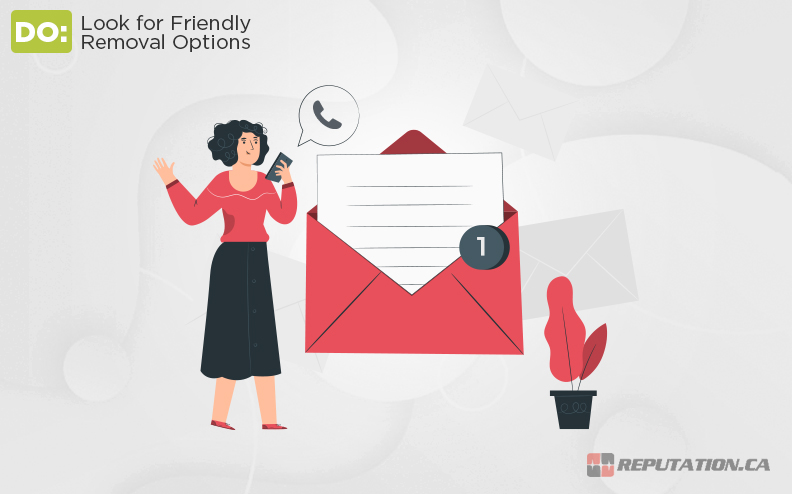
In some cases, the content that comes up is incorrect, but it’s clear that there’s no malicious intent behind it. For example, a high-profile blogger might be investigating you and your reputation. They came across posts on Reddit or Twitter that indicate something negative about you, and in the interest of full disclosure, they publish those rumors. They just want to show both sides, after all.
If you can prove that the statement is false, or even if you simply think that the blogger is receptive, you can reach out to them directly and ask that they remove the negative content.
Sure, some bloggers will immediately be skeptical and will want to verify facts, or will leave the content up simply because they think you’re trying to cover your tracks. Most, however, will be much more open to treating you fairly. They likely have no personal stake in the situation, and if you can make a compelling argument that the statements are false (such as pointing out factual inconsistencies, providing proof that a statement is false, or identifying the originating source as a slanderous rumor-monger) they may simply take down the negative part of their post.
This isn’t always possible, but it’s almost always a good first step. If the site is potentially receptive to it, anyway; sites like The Dirty absolutely won’t listen to you, and you have to resort to more drastic actions.
DON’T: Draft a Fake Legal Threat
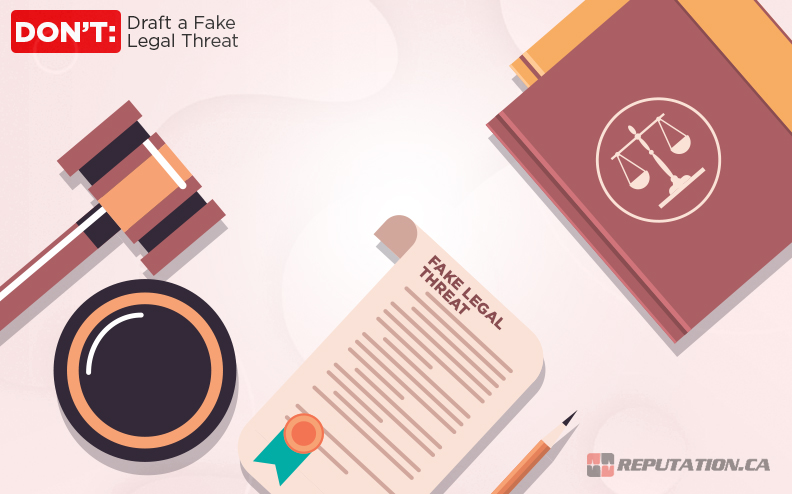
There’s a time and a place for a legal attempt to deal with defamatory content. As mentioned above, however, proving defamation is a very tall order. That, and a DMCA request, are the two primary legal routes to take down negative online statements. Unfortunately, there are a lot of people who will try to weaponize these without having any actual legal backing.
This does three things:
- It puts the poster, site, or web host on the defensive, and many people will immediately consult with a lawyer. If you’re not prepared for a real legal battle, you end up in hot water.
- It discredits you if the legal threat is invalid. It proves that you don’t know what you’re doing, and you’re desperate to get rid of something you can’t otherwise deal with, through threats.
- It makes it harder for other mechanisms to deal with the issue. A fake threat gives fuel to the fire, and you may end up triggering the Streisand Effect, amplifying the reach and exposure of what otherwise wasn’t impactful at all.
Fake legal threats can also occasionally be countered in court and get you punished for filing frivolous suits. Just don’t do it.
DO: Check for Copyright Violations
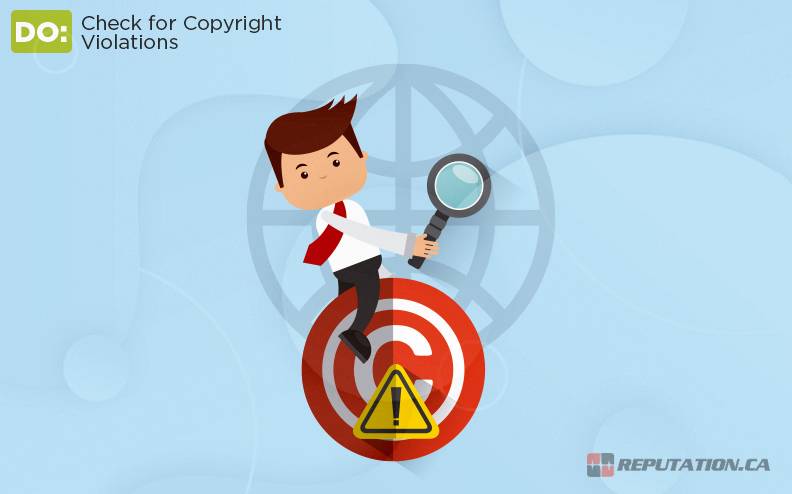
In some cases, the negative content you find attached to your name is negative because it’s stolen. For example, you wrote a book, and one of the top Google search results is a PDF copy of your book freely available for download. Assuming, of course, that you’re not offering the book for free, this is a violation of your copyright.
The tricky part about copyright violations is that Fair Use exists. Fair Use is a defense against copyright violations, which asserts that the use of the content is transformative, used for review, or another protected use of intellectual property. It’s a very complex subject, so it can be worthwhile to talk to a copyright lawyer if you think copyright violations are happening.
If there’s a real copyright violation, you can file a DMCA takedown request, either with the site owner or with the web host, to get the content taken down. You can also file the DMCA with Google to get the search result removed. This is a great solution, though it doesn’t take down non-copyrighted content. It’s always possible that the user could retain much of their negativity, but remove the copyrighted portions of the site.
DON’T: Resort to Negative or Black Hat SEO Techniques

There are quite a few ways to “punish competition” or “take down a site” using less than scrupulous means online. These range from negative SEO attacks that bomb the ranking of a site, to spam attacks, to DDoS attacks that simply take down the site.
The problem is, these are all various varieties of unscrupulous, immoral, and in many cases, just illegal. They also cost a lot of money to attempt, and they frequently don’t work. A DDoS, for example, is all of the above: it’s an illegal cyber-attack, it’s expensive to carry out, it may not work if the site has sufficient protection, and it stops working when the attack stops happening.
While it may be very tempting to try out some of these techniques to get negative content removed, they are generally just a waste of money, time, and effort. They can also backfire on you if it gets traced back to you, which it probably will; only state-level actors can hide their tracks well enough, usually.
DO: Build a Stronger SEO Presence and Personal Brand

If you can’t take down negative content, or if you’re working on it but want to reduce the chances of negativity out-ranking you, later on, you should work on building a personal brand. There’s a lot you can do here.
- If you haven’t already, create a personal website. Follow the core concepts of SEO and content marketing to build traffic and clout to this site.
- Look for opportunities to get positive PR from high-profile sites, such as news sites and industry blogs. These will typically rank well for quite a while and can drown out smaller sites.
- Register and fill out profiles on social networks and other sites. Google only has so many slots on the first page of search results, so the more you can flood with your owned and controlled content, the less room there is for negative content. Plus, social networks tend to have a lot of inherent SEO value and rank well by default.
- Consider hiring someone to produce a Wikipedia article for you. This isn’t always possible, and even if it is, it can be deleted later, but if it sticks, it’s a great resource to have.
This is a lot of work for sure, and it can be a time-consuming process. That’s why hiring a PR, Marketing, or Reputation Management firm can be a great idea.
DON’T: Hire a Shady Reputation Booster

The world of reputation management is fraught with peril. There are hundreds of companies out there that amount to a single person with a handful of form letters and, in the worst cases, a selection of black hat resources used to spam away negative content. These are, as often as not, a waste of money and time.
Hiring a reputation manager is a good idea, but you should carefully vet the one you choose. Look at their services, look at their guarantees, look at their pricing, and look at past clients if you can. Ask them how they work, and only work with those with positive techniques.
DO: Hire a Good Reputation Management Firm
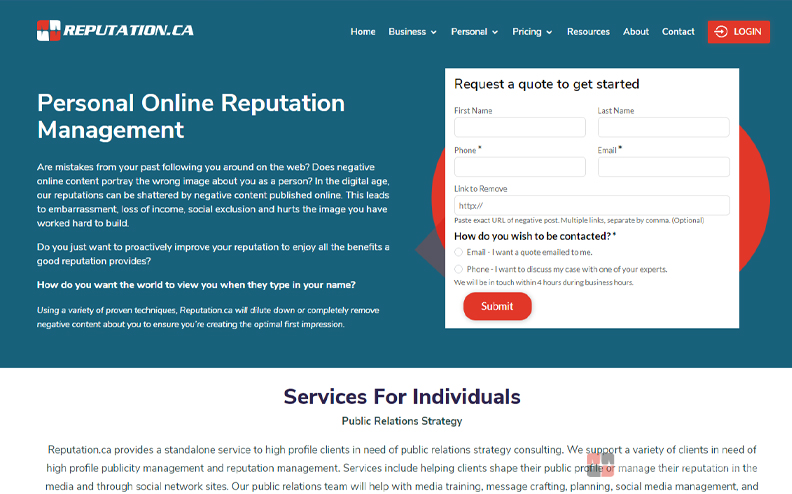
Luckily, finding a good reputation management firm is easy: you’ve already found one! Simply fill out this form, and you’ll be well on your way towards resolving the issues that plague your reputation. Whether you need a one-time removal service, an ongoing reputation monitor, a sustained campaign of PR, or all of the above, we have something for you. Feel free to reach out at any time.
DON’T: Ignore the Advice of Experts

Part of managing a reputation is avoiding the things that lead to a negative reputation in the first place. When you consult with experts, make sure you listen to what they have to say. Some parts of reputation management are tedious and time-consuming. Some are expensive. Some are ineffective. Following the right advice can be hard, but it’s essential if you want lasting results.
